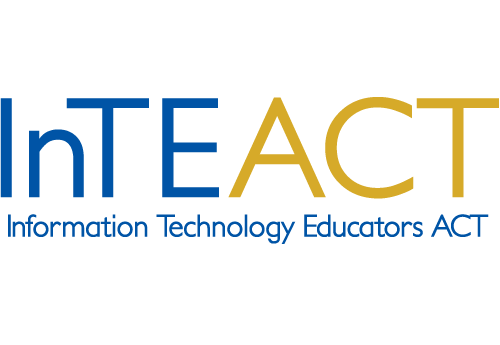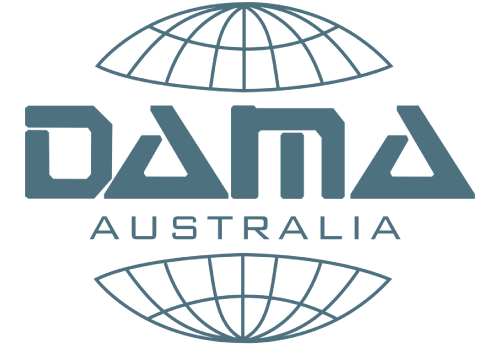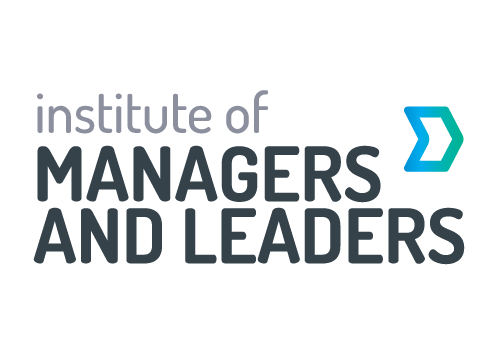Opening Address
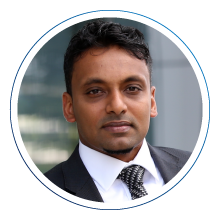
Mr Yohan Ramasundara
Yohan is an experienced executive with a strong track record of successful achievement of business outcomes leading high-performing teams in public, private and not-for-profit sectors for over fifteen years. Yohan is an Australian Public Service (APS) employee from Canberra. In 2017 Yohan was in San Francisco Bay Area as the Innovation Manager International Operations for Austrade. Previously he was the Head of Governance at IP Australia and National Manager of Assurance Services at Ecowise Environmental, Australia’s largest provider of integrated environmental consulting services at the time. Yohan is the President of the Australian Computer Society (ACS) and the Secretary General of SEARCC – the Asia Pacific Forum for Information Communication Technology (ICT). Yohan is also an international Cricket umpire. A graduate of University of Canberra, with ICT, accounting and finance qualifications, he is also the recipient of the prestigious University of Canberra gold leadership award at the 2005 Blues & Leadership awards for his sporting achievements. He is currently authoring a children’s story book in his spare time. |
Plenary Keynotes
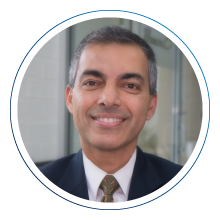
Dr Vikram Sharma
Dr Vikram Sharma is the Founder and CEO of QuintessenceLabs. Recognising the potential of quantum cybersecurity in the early 2000s while in California, Vikram sought to commercialise the technology, returning to the Australian National University to work with the Quantum Optics Group in the Department of Physics. QuintessenceLabs emerged from the world-leading research conducted by the group, and is today positioned at the forefront of the cybersecurity sector. The company's capabilities have been recognised at several Australian and international events, including as global runner-up from a pool of 2,500+ companies in IBM's SmartCamp competition in 2013, named by the Australian Information Industry Association as Australia’s most innovative small company in 2014, and selected by the Security Innovation Network as one of its SINET16 Cyber Security Innovators in 2015. In 2016, Cybersecurity Ventures named QuintessenceLabs its Cybersecurity 500 list of the world’s most innovative cybersecurity companies. QuintessenceLabs was named one of the Top 20 Businesses of Tomorrow by Westpac in 2017, and most recently was selected as a Technology Pioneer by the World Economic Forum for 2018. Prior to QuintessenceLabs, Vikram had deep experience in building and managing technology companies. During that time he founded two successful start-up ventures in the information technology infrastructure and services spaces - a consulting company providing IT services to the Federal Government in Australia, and one of India’s first private ISPs. He started his career as a programmer analyst, and went on to work as a consultant with a number of companies and government agencies in Australia. Vikram holds a master of science in computer science from The Australian National University, a master of science in management (Sloan Fellow) from Stanford University, and a doctorate in quantum physics from The Australian National University. He was presented the Pearcey State Award for Entrepreneurship in 2013. In 2014, Vikram was invited by the UK Government to join an expert panel for its flagship Quantum Technology Hubs programme and presently serves on the Industry Advisory Board of the Research School of Computer Science at the Australian National University. He is a regular contributor to journals and a frequent speaker at conferences. 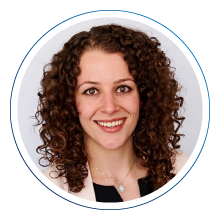
Dr Francesca Maclean
ACT Young Woman of the Year 2017, one of Science & Technology Australia’s inaugural Superstars of STEM, awarded the Australian National University (ANU) Vice Chancellor’s Award for Excellence in Tutoring, and the 2018 ANU Postgraduate Student of the Year. Francesca is a passionate advocate for diversity and inclusion in STEM and combines her love of understanding, communicating, and solving complex problems, and her personal experience as a woman in engineering, to positively influence the next generation of scientists to make STEM a more inclusive and diverse environment for everyone. During her study at ANU Francesca co-founded Fifty50, a student-led movement promoting gender equity in STEM, which was named Engineers Australia’s Best Student Group in Gender Diversity in 2017. In 2017 Francesca completed her PhD in tissue engineering, investigating biomaterials to control the inflammatory response of the brain after traumatic injury. Francesca holds a Bachelor of Engineering (Hons)/Bachelor of Science (’13) with First Class Honours from the ANU. Francesca is a Consultant within the Integrated Cities Planning team at the independent engineering firm Arup. She leads the diversity and inclusion program of the Swinburne Engineering Practice Academy and the Bachelor of Engineering Practice (Hons) as an Engineer in Residence. |
Security Stream
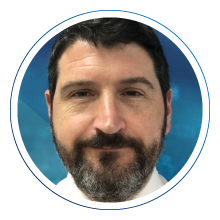
Andrew Muller
During the last ten years, Andrew has consulted widely throughout Government applying his knowledge of technical security threats and mitigations. He is an active member of Standards Australia workgroup that develops the 27000 suite of security standards as well as co-leader of the OWASP Security Testing Guide project. He is also deeply committed to grassroots groups having built the Canberra cyber security community through industry and school-based groups. Andrew also currently lectures at UNSW Canberra on offensive cyber tools and techniques …………………………………………….. Topic: Hack thyself: how to measure your security investment There are no markets more crowded and confused than cybersecurity. A Nextgen firewall AI of many colours, a SIEM of many promises. So many tech and service solutions. But are they worth it and what works? The only way to measure your defences against an adversary is to emulate the adversary. Not by lightly wrapping on the front door but by kicking the door and rummaging through the underwear drawers. Vulnerability scanners, bug bounties and automated attack and breach simulation tools all claim to have the answer. But none of these behave like an adversary. So where does the answer lie? Hear tales from the trenches about what works in practice. 
Ben Whitham
Ben Whitham is a cyber security entrepreneur and engineer. He has co-founded several award winning Australian cyber security companies, including M5 Network Security (now owned by Northrop Grumman) and Penten. After working for more than 10 years in a number of Australian government and commercial cyber incident response teams, he is currently focused on solving the challenge of detection and alert fatigue using cyber deception. He does this through teaching at UNSW, as Australian Chapter Lead for the Honeynet Project and developing his latest venture deception.ai. …………………………………………….. Topic: Disrupting intruders and insider threats with cyber deception Traditional cyber security systems are capable of detecting intrusions and insider threats, but it is not uncommon for this information to be buried in the noise of hundreds or thousands of false alarms. Another challenge for defenders is that machines (as part of benign activity) are accustomed to provided information, such as who they are and what software they are using, which simplifies life for people and processes seeking to do the wrong thing. Cyber deception is a disruptive security approach that creates uncertainty for attackers as to the location of real computers and data, while producing a small number of highly reliable indicators of intrusion. One of the key barriers to its adoption is the complexity and resources required to deliver and maintain. This talk will introduce core deceptive concepts and discuss practical ways in which you can apply these approaches to protect your networks and data. The talk will also provide a forward look to how machine learning is helping to automate the creation of convincing deceptions, which can be deployed adaptively, and at scale, without the need for human intervention. 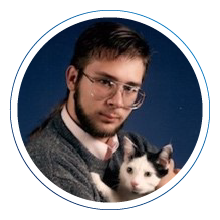
Paul Nevin
Paul Nevin is a career IT security professional having worked in forensics and investigative roles for more than twenty years. He has worked in incident response in industry, Defence and National Security teams chasing down all kinds of bad guys. In 2004 Paul identified his first ‘APT’ and has been researching ways to more easily identify and degrade the efforts of these cyber actors ever since. Paul is CTO of Cybermerc, a cyber training and R&D company specialising in Active Cyber Defence techniques. …………………………………………….. Topic: Using psychology to defeat cyber actors - leveraging deception to degrade, demoralize and deceive cyber adversaries Cybermerc was established in 2016 to research and develop technologies now categorised as Active Cyber Defence (ACD); a new term for a very old concept. We purposefully detonate state-actor malware in environments designed to simulate their intended targets. The environments are carefully designed to meet the actor’s cognitive biases, achieving deception, so they proceed to carry out their cyber operation, oblivious to our complete visibility. The use of deception allows Cybermerc to gain highly actionable intelligence that can be used elsewhere to degrade hostile cyber operations. This presentation examines the benefits of ACD techniques and the future of industry-led Defensive Cyber Operations. 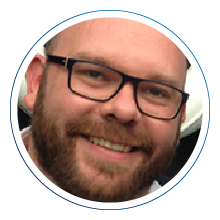
Alex Tilley
With almost 20 years of experience in computer security and cybercrime, Alex Tilley is a highly awarded cybercrime researcher. Beginning his career in the extremely regulated online casino industry on Australia’s Gold Coast, Alex went on to implement and administer many varieties of network security technologies within Australia’s banking industry. Alex was on the forefront of research and countermeasures when phishing and malware first began to attack banking platforms and customers. When he later became the Australian Federal Police’s senior cybercrime technical analyst, he combined his technical background with an analytical approach to discover “who” the cybercriminals were, why they were attacking specific targets, and what they were looking for. This work helped Alex become a recognized Supreme Court technical expert in court cases regarding cybercriminals and online child predators. …………………………………………….. Topic: Current Cybercrime threats to Australia and Australians Cyber criminals are constantly evolving their tooling and targeting. Alex will take you through some of the current stand outs in the world of online criminal behavior. |
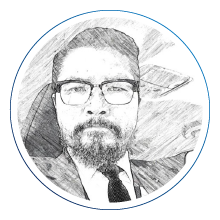
Dr Roland Padilla
Dr Roland Padilla is a Fellow of the Australian Computer Society (ACS) and a certified cyber security professional. He was a convenor of the cloud computing special interest group, and a previous Board Executive Committee Member at the ACS. Dr Roland Padilla has made a distinguished contribution to the ICT community over the last decade through his passionate and knowledgeable advocacy for cloud computing. Dr Padilla established a cloud computing community of practice in Victoria promoting the disciplined adoption of this technology as it emerged. He has translated that passion and foresight into leading academic publications in the area and in developing significant strategies for cloud computing in highly-sensitive environments. These contributions and his leadership in the cloud computing community in Australia have been supplementary to his career in ICT security in Australia, and eventually receiving a Fellows Award from the Australian Computer Society. In 2014 Roland completed his PhD from the University of Melbourne, where he explored service value in business to business cloud computing. Roland holds a Master’s degree in Information Systems from The University of Melbourne with First Class Honours and a Bachelor of Science in Applied Physics from the University of the Philippines. Currently, he is completing his Master of Business Administration at the Australian National University. Dr Padilla is a casual academic in the Australian Centre for Cyber Security at the University of New South Wales (Canberra). …………………………………………….. Topic: ICT Security in Government: Vulnerability Management Patch and vulnerability management is a security practice intended to prevent the exploitation of IT vulnerabilities. Timely patching of security issues is generally recognised as critical to maintaining the operational availability, confidentiality, and integrity of IT systems. Australian government agencies build resilience against cyber security threats through vulnerability management. This has been managed through the mandatory requirement of the Australian Government Protective Security Policy Framework that the Australian Government agencies adopt a risk management approach to cover all areas of protective security activities across the organisation. ASD recommended the Essential 8 mitigation strategies to help cyber security professionals across organisations to mitigate and increase organisational resilience to cyber security threats. This presentation will focus on vulnerability management within the Australian Government context. |
Leadership Stream

Kylie Watson
Kylie is a Deloitte Partner (and Sociologist) with extensive experience in both public sector and commercial with a focus on business intelligence, data analytics and digital behavioural economics. She has led teams across Australia, New Zealand, South Africa, Thailand, Singapore, Malaysia, Japan and Korea to assist clients with business intelligence, data analytics, business transformation, change management, behavioural economics, robotics and automation. She is an award winning innovation specialist with a black belt in design thinking and business model innovation. Her most recent career highlights have been working with the Samsung Innovation Centre in Germany on business models involving new technologies and road-showing human performance analytics for F1 races with SAP Leonardo. Kylie has co-authored academic papers on predictive analytics and nudge theory and is a recognised thought leader on human intervention points in technology. …………………………….. Topic: Dancing with Data The data explosion means the potential to solve some of humanity’s biggest issues is around the corner, but this can be overwhelming. Where do we start? We’ve witnessed an extraordinary explosion of data and technology breakthroughs over the past several years. What kind of things are possible now that weren’t possible before? Why is big data so important? What is the dark side to data? Data is no longer static – it’s a Zumba dance on speed. How do we keep up, have clear steps, and where do we start if we want to be a Master within one season? How do leaders in government and other organisations harness the explosion of interest in big data and where should they prioritise activities? What do they need to do to avoid data misuse and pass the public test? How do government and other leaders harness the power of data when it’s still quite messy and complex and there’s lot of tripping of feet? How do they avoid plunging into the dark side of the dance and the moral hazards that come with it? 
Abby Rees
Abby Rees is a self-confessed ‘education junkie’; University Lecturer; Education and Empowerment Writer; Behaviour, Change and Emotional Intelligence Specialist; Executive Meta-Coach; and artistic thinker. Abby's motto is 'energy, excellence and tenacity' and she embodies those traits in all that she does. With approaching twenty years in the behaviour change industry, Abby has extensive experience across a range of industry groups, community organisations and government sectors, including Local, State and Federal. Abby's field of expertise includes creating dynamic designs for education and change, emotional intelligence, effective communications, relationship management, conscious leadership and critical reasoning and strategic thinking. Abby is the recipient of several national and international rewards for her work in the behaviour change sectors. ………………………… Topic: Being the Disrupter Humans were born to innovate and create. However, in the workplace, there are a number of invisible factors which stymie this inbuilt capacity and natural human drive. In an environment of fast-paced change where unknown solutions exist to challenges we have not yet identified, it is imperative to foster cultures where innovation and creative thinking are the norm. This is essential to staying relevant. Being the Disrupter explores the factors which covertly reduce the capacity for individuals to create and innovate, and how this phenomenon is contagious in the workplace. Being the Disrupter challenges us to name these covert forces and interrupt their influence with four subtle and powerful traits of a true Disruptive Leader. Being the Disrupter posits that: • true disruption starts with us • leadership occurs at all levels • the disrupter can create powerful cultural change enabling innovation and creativity to flourish • disruption begins by understanding and embodying four powerful tools 
Steve Rohan-Jones
Steve is widely regarded for his innovative, unique and creative approach to the development and delivery of organisational level solutions. Steve has provided this approach to ACT Ambulance, IP Australia, Defence, the Department of Broadband, Communications and the Digital Economy (DBCDE), Australian Federal Police, Australian Sports Commission, KMart Tyre and Auto, and the Civil Aviation Safety Authority. Key elements of this approach include the use of applied emotional intelligence, resilience and leadership development capacity to support organisational transformation. Steve is an expert facilitator and accomplished presenter. Steve has worked with a range of peak bodies, public sector groups and social profit organisations including the Institute of Managers and Leaders, Australian Human Resource Institute, Department of PM&C, Australian Library and Information Association, DFK Everalls, Department of Industry, Innovation and Science, Aboriginal Hostels Limited and the National Health Funding Body. Areas covered include strategic planning, emotional intelligence, communication skills, building resilience in the workplace. Steve is also a published author in a range of fields including health, strategy and leadership. Indeed, he has over twenty books to his name. He was a co-author of Weaving the Net: Promoting Mental Health and Wellness Through Resilient Communities – a report and project into how to promote resilience and mental health within Australian communities with the Mental Health Council of Australia. Steve is also completing a PhD in emotional intelligence and resilience through Swinburne University.

Andrew Balmaks
Andrew is a co-founder and the Chairman of the Noetic Group. His primary responsibility as Chief Executive Officer of Noetic Solutions is oversighting its growth and leading projects of strategic significance. Andrew typically works with and advises senior executives in relation to their key organisational challenges. He has built a strong reputation for dealing with difficult and sensitive issues, demonstrating an ability to ‘unpack’ these issues and develop ‘de-sensitised’ and implementable options to address them. Consequently, Andrew has earned the trust of senior executives which allows him to ‘tell it like it is’. Andrew is a highly effective leader, manager and strategic thinker with over 35 years’ experience in the public and private sectors, both in Australia and overseas. He has significant experience in strategic thinking and analysis based around a consideration of alternate futures and the need for innovation. His work has strongly influenced the direction and development for a range of organisations. He is an excellent facilitator and is regarded as a lateral thinker with a proven ability to deal with complex, difficult and often sensitive problems. ………………………… Topic: The enduring relevance of leadership in eras of change Periods of substantial change are an intrinsic component of societal development, and the digital age is upon us as the next stage. As we are moving forward into this new era, does this then mean that the historically transcendent necessity of leadership is to be left behind? To answer this question first requires an understanding of what leadership in the digital age will look like. This involves asking questions about whether anything (such as the dynamics of interaction between humans or humans and technology) really changes and whether these changes fundamentally alter the pre-existing governance structures of our society. What must be considered in this context is the conceptually enduring and contextual nature of leadership. Leadership has always been most tested during periods of substantial change but has persevered in our societal structures, as demonstrated throughout history, with every era of change heralded as being unprecedented in its pace and impact. What has been proven throughout time, is that while the environments for application of leadership can change, leadership itself perseveres and provides direction and motivation in facing the new challenges of advancing development. The challenge of leadership/leaders therefore, will be their ability to adapt at pace to the new environment created by Quantum computers. |
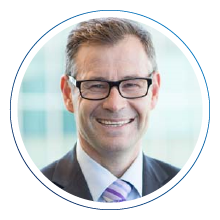
Peter Alexander
Peter is the Chief Digital Officer at the Digital Transformation Agency. He is responsible for the whole of Government Digital Identity Program, myGov brand ownership, Partnerships, Platforms, Capability Uplift in the APS (Australian Public Service) and the Government’s Chief Technology Officer branch. Peter was formerly the Chief Information Officer of the Treasury. His role was focused on improving productivity, collaboration, workforce flexibility, business intelligence, better knowledge transfer and development of shared services delivered by high quality process, systems and people. Peter has extensive experience in Australian Government delivering policy, services, change programs, government collaboration, financial management, security and corporate management. He holds a Masters of Business Informatics (IT), Graduate Diploma in Information Systems, a Bachelor of Commerce (Accounting) and is an FCPA. |
Data Management Stream
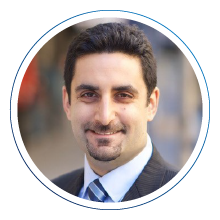
Julian Singh
Julian has a unique combination of technology evangelist with hard experience in major government projects and risk management. He is passionate about Government Open Data and how it can help governments become more transparent and accountable. He is an author on Government Open Data and has contributed to International Publications, as well as an adviser to The Wikimedia Foundation and an active member with Open Knowledge Foundation Australia. He recently published a book on the topic (www.opendata101.com), helped scope and implement the Western Pennsylvania Regional Open Data Portal (www.wprdc.org), and contributed to the 2016 GovLab O'Reilly Publication "The Global Impact of Open Data”. Julian has 15 years experience with systems development and consulting - nine years with a ‘big 4’ firm, and six years with govtech startups in Australia, London and NYC. Holds a MBA, CISA, PMP, Prince2, BA Comm/IT, a Data Science Executive Specialisation and a CDMP (Associate). ………………………… Topic: Open Data How the convergence of open government, mass collaboration platforms, and new startups are generating new innovative uses of data and improving all of our lives. This presentation will answer questions such as: What is Open Data? How are we already using it? Why should we care about it? How does it relate to other tech trends (such as blockchain, AI, and AR) and where is it heading in the future? Open Data is a rapidly growing field where governments are able to improve their own transparency, accountability and performance, connect better with their citizens, and fuel innovation. Numerous studies have outlined the billions of dollars of value that can be created by opening more data. However, there are many challenges and risks associated with open data. Government agencies need to be smart in how they understand and manage these risks. Julian will share his insights on what Open Data is, why it is so exciting, and where it is heading in the future. It will also look at how to tackle some of the major risks that organisations face when embracing open data 
Terence Chia
Terence is an enterprise architect and innovator with deep experience in information management. He has participated in the growth trends of the internet, social media and the blockchain and spoken widely on how the blockchain will transform the enterprise. At work, Terence designs and transforms complex enterprise systems. At rest, he encourages startup growth, open technologies, and engages with hackathons. Terence expects that blockchain technologies will help de-couple simplify, and efficiently reward the effective development of next generation information systems. He leads Cryptiq (a blockchain company) and is on the committee of the Capital Blockchain Centre, a professional community focused on crypto development. ………………………… Topic: Applied Enterprise Blockchain The USD300 billion blockchain economy is disrupting business models and presenting opportunities for change. The Enterprise is rapidly learning to leverage blockchain technology and to consider transformation possibilities. This is supported by technology provided by IT vendors, and a plethora of publicly available crypto platforms. IT Executives can benefit from early adoption of blockchain technology, gain an understanding of its application, and guide the future of the enterprise. Terence looks at sustainable scenarios for the application of blockchain technology, associated cost-benefit profiles, and mechanisms to seed blockchain initiatives. 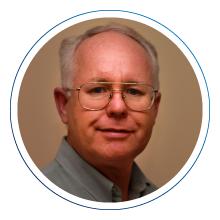
Andy Peyton
Andy Peyton is a Senior Solution Architect for IP Australia (IPA). IP Australia is responsible for the issue and management of Patents, Trade Marks, Designs, and Plant Breeder Rights within Australia. Andy has worked for many years in various data management roles for different government departments and is currently leading the team in the design and development of the new database environment that will underpin IPA’s systems for the next 20 years. Andy has previously worked in organisations such as Centrelink, Defence, Health & Ageing, Defence Housing Authority, Immigration, and the ATO. As a result, he has a keen understanding of the need for designing databases that meet the long-term needs of government departments where “applications come and go, but the data goes on forever”. Andy has a Bachelor of Science degree from the University of Sydney and a Master of Management Economics from the University of NSW. He is a senior member of the Australian Computer Society (ACS) and Secretary of DAMA Canberra. ……………………………………… Topic: Agile database development in an enterprise context There has been much hype over the past few years about using Agile methodologies for system development. Assumptions have been made that database design and development can follow practices similar to those for application development. The focus of Agile is very much the early delivery of application functionality. Often in organisations there is little experience with agile database development, so data analysts and database designers have very little best practice to rely on. Developing a database under an agile regime would appear to be relatively straightforward when a green-fields solution is being developed, and there is an increasing amount of material becoming available on how to achieve this. However, in larger enterprises such as government departments we are often designing a replacement solution for a legacy system and there is a need to migrate data from the old to the new and this can add a significant cost to the process as iterative changes create ever-increasing technical debt. There can be a similar complexity added if a new system is being put into Production over multiple releases and the structure of the live database needs to be re-factored. This presentation will address the implementation of Agile in an enterprise context where the database to be designed may be large, or complex, or needs data migration, or all of the former. We will discuss the lessons learnt in the implementation of an agile enterprise data development at IP Australia where we have over 100 years of data to migrate to the new database. We’ll look at the good and bad outcomes over the full data development lifecycle. We’ll also look at what can be done to keep the governance both robust and lean-and-mean. By the end of the presentation you’ll understand some of the key challenges when designing and developing new databases to support agile system development and will be able to avoid some of the major pitfalls. 
Dr Frederic Clarke
Ric Clarke is the Director of Emerging Data and Methods in the Australian Bureau of Statistics (ABS). He joined the ABS as a technologist in 2008, after a career of more than 15 years with the Defence Signals Directorate (DSD) spanning communications analysis, systems development, project management, and strategic planning. Originally a theoretical physicist, Ric also has postgraduate qualifications in computer science. In his current role, Ric leads a multidisciplinary research and development team in the delivery of prototype solutions for representing, linking, exploring, analysing and visualising complex and diverse digital information. This work includes the investigation of new methods and technologies for integrating and exploiting emerging data sources - administrative, transactional and sensor - for the production of official statistics. …………………………………………………. Topic: Complexity and connectedness - making sense of data for decision-making Data analytics plays a pivotal role in evidence-based decision making. For government, it enables the delivery of beneficial economic, social and environmental outcomes through better policy, services, regulation and investment. However, government intervention is increasingly hindered by the fact that Australian society, its economy and the environment form a complex system of systems. It is often very difficult to predict the effects of specific action in any one area that may have unintended consequences on a wider scale. This talk will provide an overview of a new analytical paradigm the ABS is developing for decision making in such complex domains. It will also present a case study based on a set of interconnected themes that highlight the analytical challenges and approach for some key areas of government policy interest. |
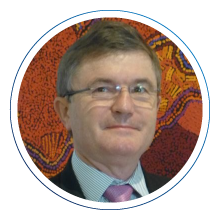
Andrew Smailes
Andrew is currently the President of DAMA Australia, an association providing a forum for exchange of information relating to information resource management and to discuss challenges, ideas, experiences, resources and questions. Previously President of the DAMA Canberra Chapter, Andrew has 28 years’ experience working in many facets of Government ICT design, delivery and support. His principal area of expertise is data management, data warehousing and business intelligence within the Federal public sector. He is the convenor for the Data Modeling Zone (DMZ) Asia Pacific conference which will be held in Canberra in March 2019. DMZ is an annual workshop series in the US, Europe and now Asia Pacific. DMZ is the only event that focuses on designing information for a digital enterprise no matter what role or level you are. ……………………………………… Topic: Become a data designer - What if your boss is an algorithm? Interest in data management is growing. Organisations are creating data management functions, Chief Data Officers appointed, data governance and quality processes initiated, conceptual data models developed, data catalogues built, and data lakes implemented. However, the fourth industrial revolution is already here and the crux of data management is different. Digital transformation and open data has shifted the idea of data ownership to an ecosystem where data is shared to support ubiquitous virtual services. Transformation is being driven by a generation growing up with aspirations of sharing, co-creation and cloud culture. Their products and services are to be called upon whenever and will provide information fuelled by understanding the relationships within multidimensional and constantly evolving networks. With more and more information available in a computable way, and people building knowledge faster and in ways not previous available, how does our approach to data management respond? How do we design data services to filter and interpret information to make it useful and meaningful to us? This presentation challenges the current prescriptive approach to data management and proposes a design-based approach leveraging artificial intelligence to assess the effectiveness of any organisations data management function. |
Futures Stream
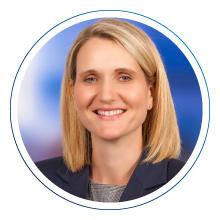
Ellen Derrick
Ellen is the National Public Sector and Healthcare Industry and Federal Government lead partner for Deloitte. Ellen specialises in working with government agencies as a trusted advisor to achieve strategic policy outcomes through the design, implementation and assurance of complex programs that leverage technology to achieve transformational business change. Ellen has significant experience working with health and human services, social policy and regulatory agencies. With over twenty years’ experience working in Federal Government, Ellen draws on national and global experience to provide clients with integrated and innovative solutions to embrace digital transformation, improve service delivery outcomes, and enhance operational efficiency. 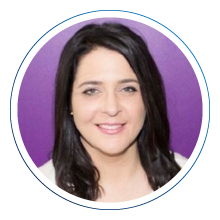
Jane McGuiggan
Jane is passionate about building capability, fostering innovation and developing high performing teams. She is experienced in organisational communications and change, successfully leading teams to deliver complex business initiatives. She has deep experience working with stakeholders to ensure changes are designed to meet the needs of the business and are adopted. She has significant experience in developing ICT and business strategy and following through with active implementation and measurement. She is adept at managing business and systems operations with extensive workforce transformation and people management expertise. Her comprehensive portfolio management experience encompasses prioritisation frameworks, financial management, governance, demand and supply, audit, assurance and risk/issues management. ………………………… Topic: Gender Equity in ICT - Accelerating change, practically With her experience in and passion for developing high performing teams in ICT settings, Jane Andrews will take us through the ways Leidos is working towards gender diversity and equity in Australia. As Leidos’s Operations Director, Jane has been involved in this process first hand and has followed it from policy to implementation. Jane will share key lessons and strategies for achieving change in a practical, sustainable and impactful manner. This session will be run as a live on-stage interview, hosted by Emily Campbell – an Engineer at Arup and Co-Founder of Fifty50, an organisation dedicated to gender equity in STEM at the ANU. Emily is particularly interested in the challenges around measuring progress in achieving equity and engaging traditionally unengaged groups in the conversation. The interview will explore these themes amongst many others and provide the opportunity for audience members to ask questions of Jane as well. 
Dr Peter Radoll
Dean of Aboriginal and Torres Strait Islander Leadership and Strategy, University of Canberra 
Dr Peter Radoll
Professor Peter Radoll is the inaugural Dean of Aboriginal and Torres Strait Islander Leadership and Strategy at the University of Canberra. Being one of Australia’s early Indigenous graduates in Information Technology, and now recognised as one of Australia’s leading Aboriginal STEM academics, he has a passion for Indigenous Science, Technology, Engineering and Mathematics. His PhD examined the adoption and effective use of ICTs in remote, rural and urban Aboriginal households. He has taught and researched in Information Systems at the Australian National University, the University of Newcastle and the University of Canberra. He is one of the four authors of IDXs foundation document and was an author and key driver of Inspiring Australia’s Indigenous Engagement in Science report. He has worked with Digital Careers Australia, in both the ACT and NSW, and has been a judge for Young ICT Explorers. He is a patron for the CSIRO Aboriginal Summer School for Excellence in Technology and Science. ………………………… Topic: The Dynamics of the Indigenous digital divide The digital divide between Indigenous and other Australians describes the unequal access to information and communications technology (ICT) between these groups. Historically, researchers have focused on acquiring new technology, but we argue that it is important to understand all the dynamics of digital usage, including the loss of access to ICT within a household. For long-lived technology such as internet access, it is particularly important to acknowledge that retention of access to the technology needs to be considered. While earlier work analyses the digital divide in terms of 'diffusion' or adoption of ICT, this presentation shows that retention of internet access is equally important in driving the digital divide. This observation could reflect 'antidiffusion' processes: factors that drive the loss of access to ICT over time. The dynamics of the digital divide have important and ongoing implications for the digital divide and addressing broader socioeconomic disadvantages experienced by Indigenous Australians. Antidiffusion is largely a phenomenon observed among Indigenous people. By analysing loss of access to ICT among both Indigenous and other Australians, we identify several factors that are associated with diffusion and antidiffusion of technology (e.g. household resources, employment, education, the age composition of households). 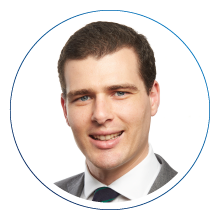
Todd Soula
Todd Soulas is the Australian leader and Manager of ING’s innovation function. He has responsibility for working across the business to drive the application of innovative technologies, build differentiated customer experiences, and define the ING’s innovation strategy. Todd has previously worked across public and private sector organisations to solve their most pressing strategic problems and deliver critical projects as a management consultant. Drawing on his entrepreneurial and professional experiences Todd also mentors and advises startup founders and is passionate about contributing to a stronger technology sector in Australia. Todd has also recently taught at the Australian National University within the TechLauncher course which sees undergraduate and postgraduate students deliver innovative technology projects. …………………………………………….. Topic: El Dorado doesn’t exist – we have to build it. Currently the pace of technology development is accelerating and it is now clear that Quantum computing will be here within our lifetimes. What isn’t clear is who will benefit most from the arrival of Quantum computing and whether we are ready as a society for another massive technological shift forward. In recent years technology has advanced which has delivered many benefits to the world however it has also led to the shifting and concentration of wealth to new industries and individuals. Whilst not a new phenomenon this is now happening at a rapidly accelerating pace. This means that as a society, and more specifically as technologists and decision makers, we need to be considered and more holistic in our application of new technologies. Technology can’t lead us to El Dorado – it only gives us the tools to help build it. |
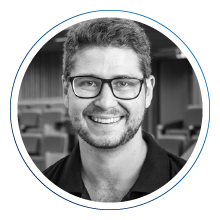
Tom Robinson
Tom Robinson is CEO of Canberra’s largest startup and creator community, Entry 29 and also a mission lead for the Startup Catalyst Future Founders Mission to Silicon Valley. Tom’s experience and expertise includes chemical and biological engineering, economics, and software. Over the last five years Tom has fallen in love with starting businesses & more broadly, trying to solve valuable problems through enterprise. Tom has founded and run his own fintech startup and made plenty of mistakes which he would love to share with other young entrepreneurs so they don't have to repeat them. |
Education Stream
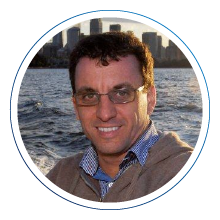
Peter Kent
Peter is currently the Deputy Principal of Gordon Primary in Canberra. Peter has a long history of leading successful innovation that combines educational research with education practice and policy. In 2010 Peter was awarded the prestigious international merit based Australian Government Endeavour Award in recognition of his significant international leadership in the field of innovation in education. In 2016 Peter received an ACEL - Excellence in Leadership Award based on his record in delivering whole school change and his significant contribution to the professional learning of others. Peter was the lead author of Macmillan Australia’s Educational Masterclass Professional Development series with a number of Peter’s books used within university teacher education programs. Previously Peter has held senior management positions within a multi-national Ed Tech company, and education policy positions within the ACT Education Directorate. 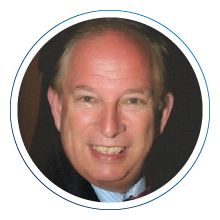
Steve Madsen
Steve has been an educator for over 4 decades in both NSW and ACT. He has been a board member of the Australian Council for Computing in Education, ICTENSW, and InTEACT. He has also been involved in administering conferences such as Global Classrooms in Beijing. Steve was a participant in ACARA’s STEM project that involved several secondary institutions around the nation. 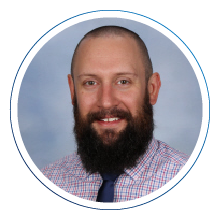
Sam Beattie
Sam Beattie is a Primary School teacher at St Vincent’s Primary Aranda. He has worked in education for almost 20 years, working in early childhood, primary settings including work and overseas. Sam has a passion for integrated technologies and application of 21st century learning skills. Sam is currently studying his Masters of Education (Knowledge Networks and Digital Innovation). Sam’s passions also lie in the development of community and collaborative inquiry driven learning with children as well as teachers. …………………………………………….. Topic: Disrupting traditional professional learning Traditional delivery methods of Professional Learning in Education are experiencing a transformation with tailored, intimate environments of networking sessions emerging as alternatives to large scale delivery. How can teachers support this transformation of professional learning knowledge in practical and usable ways? 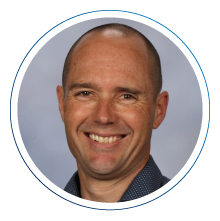
Chris Beerworth
Chris Beerworth is a Primary School Teacher at Mother Teresa Primary School, Harrison, ACT. Having ticked over 20 years as a teacher Chris has always had an interest in Information Technology and is most recently the Digital Technologies teacher at MTS. In partnership with Toni Falusi, Chris has initiated a monthly professional learning opportunity for Canberra teachers seeking to develop their knowledge of Digital Technologies called, “Beers and Bytes”. …………………………………………….. Topic: Disrupting traditional professional learning Traditional delivery methods of Professional Learning in Education are experiencing a transformation with tailored, intimate environments of networking sessions emerging as alternatives to large scale delivery. How can teachers support this transformation of professional learning knowledge in practical and usable ways? |

Leanne Cameron
Leanne is currently the President of the Australian Council of Computers in Education (ACCE) and a member of ICT Educators (NSW). Both these Professional Teachers Associations are working hard to develop the professionalism of all teachers of Technology. Leanne’s day job is Lecturer, Design, Digital and Technologies Education in the School of Education, at Southern Cross University, Coffs Harbour. Prior to working at the university, Leanne spent a number of years as a teacher in both primary and secondary schools. She is most widely known for her work with the use of Digital Technologies, Social Media and integrated STEM programs in education. …………………………………………….. Topic: Does the Australian Technologies Curriculum prepare our students to embrace their future? Leanne reviews the current Technologies curriculum to determine how well it lays the groundwork for our students to be well-prepared for what the future might bring. With change and disruption, the only constants we can ensure they will face, what knowledge, skills and values does the curriculum provide to ensure we produce confident, well-rounded, and thoughtful citizens? 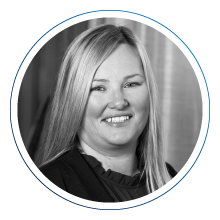
Louise Smith
Louise Smith, ACS Director Workforce Development & Planning, Education is a business capability specialist with over 15+ years experience consulting to individual businesses and governments on the skill needs within their organisation, undertaking training needs analysis and workforce development strategy development and planning to address current and future skill requirements. This includes whole of sector approaches through her senior management roles for both HR, vocational education, training sectors and member-based professional associations. Louise’s expertise includes consulting with industry peak bodies on the identification and articulation of occupational standards for nationally recognised qualifications, developing performance standards for occupation classifications; development of workplace assessment models; consulting to individual businesses on the skill needs within their organisation, supporting the identification of any skills gaps or shortages with current staffing arrangements, and strategy development to address future skill requirements. Louise’s strengths also extend to the development of workplace assessment models, competency based frameworks and nationally recognise qualifications, ongoing product roadmap for the implementation of Skills Framework for the Information Age (SFIA) within small to large ICT workforces. Louise’s professional career spans across Australia and international markets including Indonesia, Hong Kong, Vietnam, Papua New Guinea, New Zealand and Sri Lanka. SFIA Accredited Consultant, SFIA Council Member, member of SFIA Design Authority (SFIAv7), ICT IRC Member, and degree qualified along with a Diploma of Training and Assessment & Diploma of Quality Auditing. …………………………………………….. Topic: Puzzle Out SFIA 7 Staff retention and staff development are vital to the success of ICT organisations – especially in the current environment of rapid technological change. Assuring the pipeline of future ICT human capital is critical, and there are clear indicators pointing to future skills needs capability. Skills Framework for the Information Age (SFIA) version 7 released in June 2018 affords a broad range of business benefits through the use off a consistent definition of professional ICT skills. These include: • Consistent job descriptions providing clarity of expectation; • Providing clarity to career pathways and developing an understanding of skills mobility across the business; • Enhanced alignment of skills (via people) to job roles; • Greater fit matching people to specific job roles; and • Optimal skills utilisation, mobility and project capability via people and job roles being assigned to new work teams. This session will focus on the recent changes to SFIA and includes: • Key themes for SFIA 7 – Security, Service Management, Software Engineering, Big Data/Informatics, Digital Transformation, Agile and DevOps • What has changed? What hasn’t changed? • New Skills aligned to the key themes of SFIA 7 review • Approach to implementing SFIA – how does the market currently use SFIA • How does ACS use SFIA in its products and services? |
Plenary Locknotes

Craig Rispin
Craig Rispin is a Business Futurist and Innovation Expert his expertise is in emerging business, people and technology trends – and how companies can profit from them. Craig has over 20 years experience working where the future has been created – with some of the most innovative companies in the world in the IT, consumer electronics, internet and broadcasting industries. He is an award-winning speaker and has addressed audiences as large as 16,000 people on 5 continents and has consulted with CEOs of leading companies worldwide. Some of his clients include: BHP Billiton, Canon, Colonial First State, IBM, Kimberly-Clark, King & Wood Mallesons, NRMA, Sports craft, Symantec, Toyota, Young Presidents’ Organization (YPO) and hundreds of professional industry associations. An award-winning keynote speaker and CEO mentor, Craig shows his clients how to Know First, Be First and Profit First.
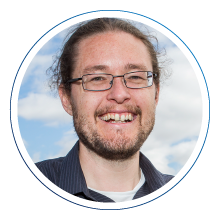
Dr Brad Tucker
Brad Tucker is an Astrophysicist/Cosmologist at the Research School of Astronomy and Astrophysics, Mt. Stromlo Observatory and the National Centre for the Public Awareness of Science, at the Australian National University. Brad received Bachelor’s degrees in Physics, Philosophy, and Theology from the University of Notre Dame, and then a PhD at Mt. Stromlo Observatory at the ANU. He’s one of the leads of a Kepler Space Telescope Key Program. He is also leading a project to build a network of ultraviolet telescopes in the upper atmosphere, a search to find Planet 9 – a hypothetical new planet on the edges of our Solar System, as well as a new mission to capture and mine an asteroid. Brad frequently gives talks to school groups and the public about Astronomy and has regular segments on various radio and TV stations such as ABC 24 and 7:30 report, and Channel 7 Sunrise and the Morning Show. Among other things, Brad has also developed a series of Astronomy coins with the Royal Australian Mint, consulted on science fiction movies such as Alien:Covenant. He is currently in the process of writing his first popular book and developing a series of Massive Open Online Courses (MOOCs). Topic: The Future of Space in Australia In the past few decades, rapid progress in technology has led to a complete change in our view of the Universe. In the next few decades, this will change even more as we become an inter-planetary species. Brad will talk about some of these discoveries, from planets around other stars, to exploring the Universe and maybe even visiting other planets, and show how we are now turning science fiction into reality |
Conference Address
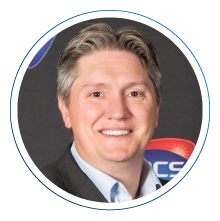
Andrew Johnson
Andrew has extensive senior management experience servicing both the higher education and vocational education and training sectors, including membership based professional associations. His career has seen him work in a diverse range of markets across the Asia Pacific region and includes developing accreditation and certification frameworks. In his time at the ACS he has delivered significant growth results in the workforce planning and development, SFIA and education markets, all while improving member engagement, particularly among professional partners. Mr Johnson holds a Master of Arts in Technology Policy and Management. He is an ACS Certified Professional and an accredited SFIA Consultant. ………………………… Topic: Canberrans as disruptors The responsibility of the tech community in our nation’s capital to lead in an age of disruptive technology. |
Closing Remarks
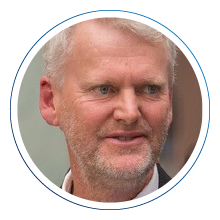
Jeff Mitchell
Jeff has over 20 years' experience in delivering complex and high profile business and ITC projects across Australian Government portfolios, most recently specialising in regulatory compliance approaches for the health sector. As an active member of the Australian Computer Society (ACS), the Professional Association and peak body representing Australia’s ICT sector, Jeff has held elected roles of Chair of the ACS Branch Executive Committee (Canberra), National Director for Community Engagement, and National Director Membership Life-Cycle. Jeff was awarded the ACS President's Award in 2016 for sustained and substantial contributions to the Society. These leadership roles within the ACS have provided Jeff with opportunities to drive research investigating the motivation and take-up of ICT careers by school leavers and to promote STEM outreach activities such as First Lego League to school aged children in the Canberra region. Jeff is currently curating Quantum. Change. Disrupting. Canberra, a one day conference themed on Canberra in a Fourth Industrial Revolution future, and is also developing toolsets for measuring and benchmarking the organisational leadership and technical capability essential for successful digital transformation. Jeff has formal qualifications in Information and Communications Technology from the University of New South Wales and University of Canberra and maintains Australian Computer Society Certified Professional (CP) status. He is a current member of the ANU Research School of Computer Science Industry Advisory Group (IAG) and the Canberra Business Chamber Innovation Taskforce. |

